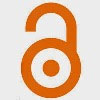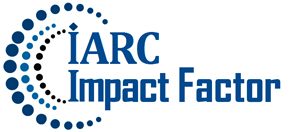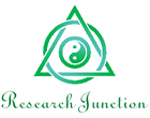Editorial Policies
Focus and Scope
The IJHASS publishes Follow double-blind peer-reviewed papers concerning theory, practice, and research in Humanities and Applied Social Science. The Journal accepts papers presenting new developments in theory and practice, case studies, research articles and papers that review existing work in the area. Especially valued are the articles that integrate therapists' phenomenological experience, clinical thinking, theories, and research. The Journal is also open to new ideas in the wider field of Humanities, Applied Social Science and other Humanities that may potentially be useful for the development of Humanities & Applied Social Science.
The journal publishes research papers in the fields of economics, anthropology, business studies, communication studies, law, corporate governance, criminology, cross cultural studies, demography, development studies, education, ethics, geography, history, industrial relations, information science, international relations, linguistics, library science, media studies, methodology, philosophy, political science, population Studies, psychology, public administration, sociology, social welfare, linguistics, literature, paralegal, performing arts (music, theatre & dance), religious studies, visual arts, women studies and so on.
Section Policies
Article
- Open Submissions
- Peer Reviewed
- Indexed
Reviews
- Open Submissions
- Peer Reviewed
- Indexed
Peer Review Process
The submitted papers should be original, unpublished, and not in consideration for publication elsewhere at the time of submission to IJHASS. All paper submissions will be referred in a double-blind review process by at least two international reviewers with expertise in the relevant subject area.
Open access Policy

IJHASS is a peer-reviewed journal with open access.The article processing ordelivery of the manuscript submitted to the manager or editor through an online system orby using the OJS Open Access publishing model.
Archiving
This journal utilizes the LOCKSS system to create a distributed archiving system among participating libraries and permits those libraries to create permanent archives of the journal for purposes of preservation and restoration.
Publication Frequency
International Journal of Humanities & Applied Social Sciences (IJHASS) is published by Center for Promoting Education and Research (CPER) USA. The publication frequency of the ijhass journal is monthly.
Publication Ethics and Malpractice Statement
The publication of an article in a peer-reviewed journal is an essential building block in the development of a coherent and respected network of knowledge. It is a direct reflection of the quality of the work of the authors and the institutions that support them. Peer-reviewed articles support and embody the scientific method. It is therefore important to agree upon standards of expected ethical behavior for all parties involved in the act of publishing: the author, the journal editor, the peer reviewer, the publisher and the society-owned or sponsored journals.
IJHASS will do it best to abide by the Code of Conduct of the Committee on Publication Ethics (COPE) and aims to stick on to its Best Practice Guidelines. The following statements describe the ethical behavior of all parties involved in the act of publishing an article for IJHASS, i.e.: the author, the Editor, the peer reviewer and the publisher.
The Editor Responsibilities
Publication decisions
The editor of IJHASS is responsible for deciding which of the articles submitted to the journal should be published.The justification of the work in question and its importance to researchers and readers must always drive such decisions. The editors may be guided by the policies of the journal's editorial board and constrained by such legal requirements as shall then be in force regarding defamation, copyright infringement, and plagiarism. The editors may confer with other editors or reviewers in making this decision.
Fair play
An editor at any time evaluates manuscripts for their intellectual content without regard to race, gender, sexual orientation, religious belief, ethnic origin, citizenship, or political philosophy of the authors.
Confidentiality
The editor and any editorial staff must not reveal any information about a submitted manuscript to anyone other than the corresponding author, reviewers, potential reviewers, other editorial advisers, and the publisher, as appropriate.
Disclosure and conflicts of interest
Unpublished materials disclosed in a submitted manuscript must not be used in an editor's own research without the express written consent of the author.
The Reviewers Responsibilities
Contribution to Editorial Decisions
Peer review assists the editor in making editorial decisions and through the editorial communications with the author may also assist the author in improving the paper.
Promptness
Any selected referee who feels unskilled to review the research reported in a manuscript or knows that its prompt review will be impossible should notify the editor and apology himself from the review process.
Confidentiality
Any manuscripts received for review must be treated as confidential documents. They must not be shown to or discussed with others except as approved by the editor.
Standards of Objectivity
Reviews should be conducted impartially. Personal criticism of the author is inappropriate. Referees should express their views clearly with supporting arguments.
Acknowledgement of Sources
Reviewers should recognize relevant published work that has not been cited by the authors. Any statement that an observation, derivation, or argument had been previously reported should be accompanied by the relevant citation. A reviewer should also call to the editor's attention any substantial similarity or overlap between the manuscript under consideration and any other published paper of which they have personal knowledge.
Disclosure and Conflict of Interest
Privileged information or thoughts obtained through peer review must be kept confidential and not used for personal advantage. Reviewers should not consider manuscripts in which they have conflicts of interest resulting from cutthroat, collaborative, or other relationships or connections with any of the authors, companies, or institutions connected to the papers.
The Author Responsibilities
Reporting standards
Authors of reports of original research should present an accurate account of the work performed as well as an objective discussion of its consequence. Underlying data should be represented exactly in the paper. A paper should contain sufficient detail and references to permit others to replicate the work. Deceitful or knowingly inaccurate statements constitute unethical behavior and are unacceptable.
Multiple, Redundant or Concurrent Publication
An author should not, in general, publish manuscripts describing essentially the same research in more than one journal or primary publication. Submitting the same manuscript to more than one journal concurrently constitutes unethical publishing behavior and is unacceptable.
Acknowledgement of Sources
Proper acknowledgment of the work of others must always be given. Authors should cite publications that have been important in determining the nature of the reported work.
Authorship of the Paper
Authorship should be limited to those who have made an important contribution to the conception, design, execution, or interpretation of the reported study. All those who have made significant contributions should be listed as co-authors. Where there are others who have participated in certain substantive aspects of the research project, they should be acknowledged or listed as contributors. The corresponding author should ensure that all appropriate co-authors and no inappropriate co-authors are included on the paper and that all co-authors have seen and accepted the final version of the paper and have agreed to its submission for publication.
Disclosure and Conflicts of Interest
All authors should disclose in their manuscript any financial or other substantive conflicts of interest that might be construed to influence the results or interpretation of their manuscript. All sources of financial support for the project should be disclosed.
Fundamental errors in published works
When an author discovers a significant error or inaccuracy in his/her own published work, it is the author’s obligation to punctually notify the journal editor or publisher and cooperate with the editor to retract or correct the paper.
All authors are requested to disclose any actual or potential conflict of interest including any financial, personal or other relationships with other people or organizations for the three years prior to the start of the submitted work that could inappropriately influence, or be perceived to influence, their work.
Submission of an article implies that the work described has not been published previously (except in the form of an abstract or as part of a published lecture or academic thesis or as an electronic preprint), that it is not under consideration for publication elsewhere, that its publication is approved by all authors and tacitly or explicitly by the responsible authorities where the work was carried out, and that, if accepted, it will not be published elsewhere in the same form, in English or in any other language, including electronically without the written consent of the copyright-holder.
Screening for Plagiarism
This journal has a service agreement with CrossRef Similarity Check. All submitted papers are checked for plagiarism using iThenticate before they undergo the peer-review process. Further, it is the obligation of each author to provide prompt retractions or corrections of errors in published works. The IJHASS will follow COPE guidelines on plagiarism if it will be identified in the submission.
Article Processing Charges (APCs)
Article Processing Charges is free, Dollar.0.00. Allows people to access the full text versions of the articles.
Article Submission Charges
Article Submission Charges in IJHASS is Free, Dollar.0.00. Submission includes submitting, peer-reviewing, editing, publishing, maintaining and archiving.
With the payment of this fee, the review, editorial decision, and author notification on this manuscript is guaranteed to take place within 4 weeks.
If the paper is accepted for publication, author(s) will be asked to pay 200 USD as article publication fee. Waiver policy is not applicable. The payment method will be notified by the editor after the acceptance of the paper.













